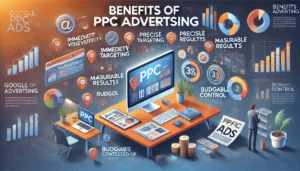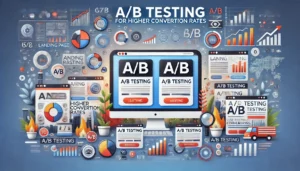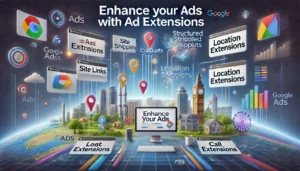Mastering PPC: Key Components for a Successful Pay-Per-Click Campaign

Successful Pay-Per-Click Campaigns: In the fast-paced world of digital marketing, mastering Pay-Per-Click (PPC) advertising is essential for driving targeted traffic and achieving business goals. This article delves into the key components that make a PPC campaign successful, from understanding the basics to leveraging advanced techniques.
Key Takeaways
- Understanding the basics of PPC advertising is crucial for setting a strong foundation for your campaigns.
- Thorough keyword research helps in selecting the right keywords that attract high-quality traffic.
- Crafting compelling ad copy with attention-grabbing headlines and persuasive descriptions is essential for capturing user interest.
- Optimising landing pages for conversions ensures that the traffic driven by PPC ads results in meaningful actions.
- Monitoring and analysing campaign performance allows for data-driven decisions and continuous improvement.
Understanding the Basics of PPC Advertising
What is PPC?
Pay-per-click (PPC) advertising is a digital marketing model where advertisers pay a fee each time their ad is clicked. Essentially, it’s a way of buying visits to your site, rather than attempting to earn those visits organically. Google ads PPC and Google Adwords PPC are among the most popular platforms for running successful Pay-Per-Click campaigns. This model allows businesses to reach their target audience more effectively and efficiently.
How PPC Works
PPC operates on a bidding system where advertisers bid on keywords relevant to their business. When a user searches for those keywords, the search engine displays the ads in the sponsored section of the search results. The position of the ad is determined by the bid amount and the ad’s quality score. A well-optimised PPC campaign involves thorough keyword research, compelling ad copy, and strategic bid management.
Benefits of PPC
PPC advertising offers numerous benefits, including immediate visibility on search engines, precise targeting options, and measurable results. It allows businesses to control their budget and only pay for actual clicks, making it a cost-effective marketing strategy. Additionally, PPC campaigns can be easily adjusted and optimised based on performance data, ensuring continuous improvement and better ROI. Partnering with a PPC agency or conducting a comprehensive PPC audit can further enhance the effectiveness of your campaigns.
Conducting Thorough Keyword Research
Importance of Keyword Selection
Conducting thorough keyword research is essential to identify high-value keywords that are relevant to your business. Understanding the intent behind different types of keywords, such as navigational, informational, commercial, and transactional, is crucial. Align your keywords with your campaign goals and target audience to ensure maximum effectiveness.
Tools for Keyword Research
Use tools like Google Keyword Planner and competitor analysis to compile a list of keywords. These tools help you discover popular search terms and provide insights into what could work for your products or services. Additionally, third-party applications can offer a broader perspective on keyword trends and performance.
Long-Tail vs Short-Tail Keywords
Including a mix of broader and more niche keywords is vital to capture various customer search behaviours. Long-tail keywords, which are more specific and usually longer, often have lower competition and higher conversion rates. On the other hand, short-tail keywords are more general and can drive a higher volume of traffic but may be more competitive and costly. Regularly review and update your keyword lists by removing underperforming keywords and adding negative keywords to filter out unwanted traffic.
Effective keyword management extends beyond initial selection. Continuous monitoring and tweaking of keywords based on performance data is key. This ensures that your campaigns stay competitive in a dynamic search environment, optimising spend, and steadily improving results.
Crafting Compelling Ad Copy
Writing Attention-Grabbing Headlines
In the fast-scrolling world of online content, your headline is your first and often only chance to make an impression. Remember, your headline is the gateway to your content. Make it an irresistible invitation that your audience can’t help but accept. Craft a compelling headline that includes your main keyword and entices users to click.
Creating Persuasive Descriptions
Crafting compelling ad descriptions is crucial for capturing the attention of your audience and persuading them effectively. Here are some strategies to help you create persuasive ad copy:
- Highlight unique selling points: Emphasise what sets your product or service apart from the competition.
- Include a strong CTA: Use clear and action-oriented language to prompt users to take the desired action.
- Value Proposition: Clearly communicate what sets you apart and why users should click.
- A/B Testing: Experiment with different ad variations to identify the most effective combinations.
Utilising Keywords Effectively
Mastering the art of ad copywriting is paramount. Integrate relevant keywords naturally into your ad copy. This not only improves your ad’s relevance but also boosts its performance. Keywords should flow seamlessly within your content, enhancing readability while ensuring your ad reaches the right audience.
A well-crafted ad copy can significantly increase your click-through rate (CTR) and conversion rate, making your PPC campaign more successful.
Optimising Landing Pages for Conversions
Designing User-Friendly Pages
The landing page is where the magic happens. It’s where the user decides whether to take the desired action or not, hence optimising your landing page ensures an optimal user experience, leading to improved conversion rates and better ad performance. From the design of the page to the call-to-action (CTA), every element on the landing page should be optimised to encourage the user to take the desired action. Some elements that can be optimised include:
- Compelling and relevant headlines that grab attention immediately.
- Clear and concise value propositions.
- Visually appealing and easy-to-navigate layouts.
- Prominent and persuasive CTAs.
A/B Testing for Best Results
A/B testing is a powerful method to determine what works best for your audience. By creating two versions of a landing page and testing them against each other, you can identify which elements drive more conversions. Focus on testing one variable at a time, such as the headline, CTA, or images, to get clear insights. Regularly conducting A/B tests can lead to continuous improvement and higher conversion rates.
Ensuring Mobile Compatibility
With a significant portion of users accessing the internet via mobile devices, ensuring your landing pages are mobile-friendly is crucial. A mobile-compatible landing page should load quickly, be easy to navigate, and have touch-friendly buttons. Use responsive design techniques to ensure your page looks great on all devices. Remember, a seamless mobile experience can significantly boost your conversion rates.
Optimising your landing pages is just as important as optimising your PPC ads. By creating relevant and engaging content, you can increase the chances of converting your ad clicks into valuable leads or customers.
Monitoring and Analysing Campaign Performance
Monitoring and analysing your PPC campaign performance is essential for optimising results and ensuring your advertising dollars are well spent. Regularly reviewing campaign metrics is crucial for identifying opportunities to optimise and improve results. By analysing important metrics such as click-through rate, cost-per-click, conversion rate, and impression share, you can determine which elements of your campaign are performing well and which need adjustment.
Key Metrics to Track
To effectively monitor your successful Pay-Per-Click campaigns, focus on key performance indicators (KPIs) such as:
- Impressions
- Clicks
- Conversions
- Return on Investment (ROI)
- Cost-per-click (CPC)
- Click-through rate (CTR)
- Conversion rate
These metrics will help you understand the overall health of your campaign and identify areas for improvement.
Using Analytics Tools
Utilise platform-specific analytics tools like Google Analytics and Google Ads to measure ad performance. These tools provide valuable insights into user behaviour, allowing you to make data-driven decisions. For instance, a Google ads audit can reveal underperforming keywords or ads that need adjustment.
Making Data-Driven Decisions
Data is your best friend in PPC. Regularly monitor key metrics and interpret the data to:
- Identify winning ad variations and optimise campaigns.
- Uncover areas for improvement, such as irrelevant keywords or underperforming landing pages.
- Adjust bids and budget allocation based on performance insights.
Continuously monitor your campaign performance and key metrics to identify areas for improvement. Regular reviews will help you identify trends and make data-driven optimisations.
Budget Management and Bidding Strategies
Setting a Realistic Budget
First and foremost, budget allocation and bid management are crucial in PPC management. These processes ensure that resources are allocated and managed in an efficient and effective manner to achieve the desired campaign objectives. Setting a realistic budget is the foundation of any successful Pay-Per-Click campaign. It involves understanding your financial limits and aligning them with your campaign goals. Start by analysing your overall marketing budget and determining how much you can allocate to PPC without compromising other marketing efforts.
Choosing the Right Bidding Strategy
Choosing the right bidding strategy involves understanding your target audience, campaign goals, and the competitive landscape of your product category. Here’s a quick overview:
| Strategy | Ideal for | Pros | Cons |
|---|---|---|---|
| Dynamic – Down Only | Sellers aiming to maintain a lower ACoS | Limits overspending | May miss potential sales |
| Dynamic – Up and Down | Pursuing aggressive growth | Captures high-converting traffic | Higher ad spend |
| Fixed | Precision control over bids | Steady ad spend | Requires frequent manual updates |
Adjusting Bids Based on Performance
Whether it’s budget allocation and bid management, targeting and audience segmentation, or A/B testing and continuous optimisation, each strategy plays a vital role in ensuring the success of your PPC campaign. Regularly reviewing and adjusting your bids based on performance data is essential. Use analytics tools to monitor key metrics such as click-through rates (CTR), conversion rates, and return on ad spend (ROAS). This data-driven approach allows you to make informed decisions and optimise your bids for better results.
Effective budget management and bid strategies can significantly impact the success of your PPC campaigns. By setting a realistic budget, choosing the right bidding strategy, and continuously adjusting bids based on performance, you can achieve your campaign objectives and maximise your return on investment.
Leveraging Advanced PPC Techniques
Remarketing Strategies
Remarketing is a powerful technique that allows you to re-engage users who have previously interacted with your website. By targeting these users with tailored ads, you can significantly increase your conversion rates. Remarketing helps keep your brand top-of-mind, encouraging users to return and complete desired actions. For instance, a PPC eCommerce agency can use remarketing to target users who abandoned their shopping carts, offering them special discounts to entice them back.
Utilising Ad Extensions
Ad extensions enhance your ads by providing additional information and increasing their visibility. These extensions can include site links, callouts, structured snippets, and more. By leveraging ad extensions, you can improve your ad’s click-through rate (CTR) and provide users with more reasons to engage with your ad. For example, a London PPC agency might use location extensions to attract local customers, while Google ads agencies can use call extensions to drive phone inquiries directly from the ad.
Exploring Automation Tools
Automation tools can streamline your PPC campaigns, saving you time and ensuring optimal performance. Tools like Google Ads’ automated bidding strategies, scripts, and third-party software can help you manage bids, budgets, and ad placements more efficiently. By utilising these tools, you can focus on strategic decision-making rather than manual tasks. Google advertising agencies often rely on automation to handle large-scale campaigns, ensuring consistent performance and maximising ROI.
Advanced PPC techniques, when implemented correctly, can transform your campaigns from good to exceptional. By incorporating remarketing, ad extensions, and automation tools, you can stay ahead of the competition and achieve your marketing goals.
Conclusion
Mastering PPC advertising requires a blend of creativity, strategic planning, and analytical thinking. By focusing on these key components, businesses can create PPC campaigns that not only capture attention but also convert leads into loyal customers. With the right and expertise, the world of PPC offers endless possibilities for growth and success. Remember, the key to a successful Pay-Per-Click campaign lies in continuous optimisation, leveraging available tools and resources, and aligning your efforts with your overall business objectives. So, embrace the power of PPC and watch your business soar to new heights.
Frequently Asked Questions for a Successful Pay-Per-Click Campaign
What is PPC?
PPC stands for Pay-Per-Click, a model of internet marketing where advertisers pay a fee each time one of their ads is clicked. Essentially, it’s a way of buying visits to your site, rather than attempting to earn those visits organically.
How does PPC work?
PPC works by allowing advertisers to bid for ad placement in a search engine’s sponsored links when someone searches on a keyword that is related to their business offering. Advertisers pay a fee each time their ad is clicked, directing a potential customer to their website.
What are the benefits of PPC advertising?
PPC advertising offers several benefits including immediate visibility on search engines, precise targeting options, measurable results, and the ability to control your budget and ad spend. It also allows for quick experimentation and optimisation of ad campaigns.
Why is keyword research important in PPC?
Keyword research is crucial in PPC because it helps identify the terms and phrases your potential customers are searching for. This ensures that your ads are shown to a relevant audience, increasing the likelihood of clicks and conversions.
How can I write compelling ad copy for PPC?
To write compelling ad copy for PPC, focus on creating attention-grabbing headlines, persuasive descriptions, and incorporating relevant keywords. Highlight the unique selling points and benefits of your product or service to entice users to click on your ad.
What metrics should I track to measure PPC performance?
Key metrics to track in PPC include Click-Through Rate (CTR), Cost Per Click (CPC), Conversion Rate, Quality Score, and Return on Ad Spend (ROAS). Monitoring these metrics helps you understand the effectiveness of your campaigns and make data-driven decisions for optimisation.
Author
Search Blog
Free PPC Audit
Subscribe to our Newsletter
The Voices of Our Success: Your Words, Our Pride
Don't just take our word for it. With over 100+ five-star reviews, we let our work-and our satisfied clients-speak for us.
"We have been working with PPC Geeks for around 6 months and have found Mark and the team to be very impressive. Having worked with a few companies in this and similar sectors, I rate PPC Geeks as the strongest I have come across. They have taken time to understand our business, our market and competitors and supported us to devise a strategy to generate business. I value the expertise Mark and his team provide and trust them to make the best recommendations for the long-term."
~ Just Go, Alasdair Anderson




